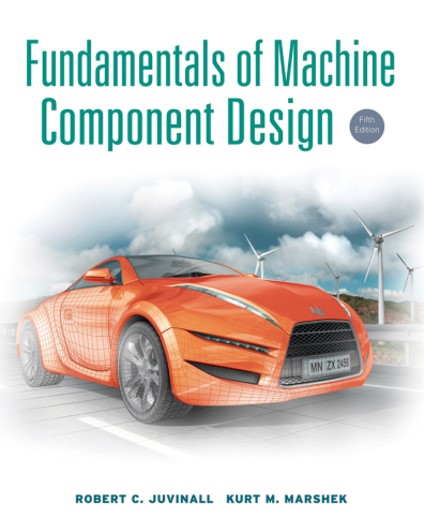
Synopsis
This course is designed to expose students to analysis in machine design element failure theories. This includes failures due to static and fatigue loads. It involves fatigue strength and endurance level, modified stress, Goodman diagram and fatigue design under tensile and combined stresses. The content will encompass the design and selection of bolts, welding, spring, ball and roller bearing, gears and belts. At the end of the course, a student should have the capabilities to identify, make analysis and design the machine elements in the perspective of static and fatigue failure aspect.
Course Learning Outcome (CLO)
- Analyze and predict static and fatigue failure of machine components using relevant theories
- Evaluate fasteners’ integrity and safety based on load and stress analysis
- Evaluate the integrity and safety of components in power transmission system
- Synthesize components into a working system
- Conduct written presentation on component analyses and working system
- Assume responsibility as team leader and adopt team-working to solve design problem
Teaching and Learning Activities
- Face to Face
- Lectures
- Practical / Tutorial/Studio
- SCL Activities
- Independent Study
- Non-face to face learning
- Revision
- Preparation for Assessment
- Formal Assessment
- Continuous Assessment
Teaching Methodology
- Lecture will be given to basic theory of machine element
- Students are re quired to attend studio to have guided learning and supervision on group project
Schedule
| Week | Lecture | Topic / Content |
|
1-2
|
4 hrs
|
Design of Mechanical Failure Prevention 1: Static Failure Prevention • Introduction to Failure Theory • Maximum Normal Stress • Maximum Shear Stress • Distortion Energy Theory • Mechanical Properties of Material
|
|
3-4
|
4 hrs
|
Design of Mechanical Failure Prevention 2: Fatigue Failure Prevention • Introduction • Fatigue Failure Theory • Fatigue Strength and the Modifying Factor affecting Fatigue Strength • Stress & Cycle Diagram • Cyclic Loading, Stress and Combined Load. • Mechanical Properties of Material (Fatigue)
|
| 5 |
2 hrs
|
Design of Mechanical Element 1: Spur Gear Part 1 (Dynamics) • Introduction • Gear Train • Gear Forces • Freebody diagrams • Gear Specifications
|
| 6 |
2 hrs
|
Design of Non-Permanent Joint: Bolt • Introduction • Bolts centroidal Analysis • Shear, Tensile, Combined and eccentric Load • Bolt Joint Design • Bolt and Nuts Thread Specifications and Mechanical Properties
|
| 7
|
2 hrs
|
Design of Permanent Joint: Welding • Introduction • Type of Welding • Standard Symbols • Butt Weld and Fillet • Stress Distribution and Load Effects • Design of Welding Joint • AWS Mechanical Properties for Welding Electrode
|
|
8
|
|
Mid Semester Break |
|
9
|
2 hrs
|
Design of Mechanical Element 2: Bearings • Introduction • Type and Specification • Load Analysis • Load Rating and Bearing Selection • Timken Bearings Manual
|
|
10
|
2 hrs
|
Design of Mechanical Element 3: Shaft • Introduction • Static Loading • Fatigue Loading • Shaft Sizes and Mechanical Properties
|
| 11 |
2 hrs
|
Design of Mechanical Element 4: V-Belt |
| 12-13 |
4 hrs
|
Design of Mechanical Element 1: Spur Gear Part 2 (Strength) • Introduction • Lewis Method • AGMA Method
|
| 14-15 |
4 hrs
|
Major Project |
References
Grading
| No. | Assessment | Number | % each | % total | |
| 1. | Test | 2 | 30 | 60 | |
| 2. | Project (Minor) | 2 | 5 | 10 | |
| 3. | Project (Major) | 1 | 20 | 20 | |
| 4. | Homework | 2 | 5 | 10 | |
| Overall Total | 100 | ||||
Attendance
- Student must attend not less than 80% of lecture hours as required for the subject.
- The student will be prohibited from attending any lecture and assessment activities upon failure to comply the above requirement. Zero mark will be given to the subject.
Notes
Chapter 001 Introduction to Component Design
Chapter 002 Static Failure Prevention
Chapter 003 Fatigue Failure Prevention
Chapter 004 Design of Mechanical Element : Spur Gear Part 1
Chapter 005 Design of Mechanical Joint 1 : Bolt (non-permanent)
Chapter 006 Design of Mechanical Joint 2 : Weld (permanent)
Chapter 007 Design of Mechanical Element : Bearing
Chapter 008 Design of Mechanical Element : Shaft
Chapter 009 Design of Mechanical Element : V-Belt & Manual
Chapter 010 Design of Mechanical Element : Spur Gear Part 2

